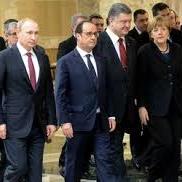(WP) “He would have kept my house for himself if it wasn’t for the Taliban. They were quick and fair.” Thus did a resident of Kandahar, Afghanistan, recently describe Taliban justice to the New York Times.
Such words sound jarring to Western ears. Taliban courts may be called quick and brutal in Western accounts, but never quick and “fair.” Yet this observation provides some explanation for the emergence and staying power of extremist movements, from Afghanistan to the Middle East to Nigeria. If the global turmoil of the late 1980s was fueled by a liberty deficit, today’s extremist movements may well be exploiting a justice deficit. […]
In Central Asia, disgruntled young people no longer bother with pro-democracy groups, according to activists from several countries I have interviewed. Instead, they flock to the mosques. “The only people who talk social justice these days are the Islamists,” says George Washington University’s Marlene Laruelle, an eminent Central Asia scholar. “The argument they’re making is that the regime is corrupt and unjust because it’s secular. Such reasoning did not have much resonance in the past. Now it does.”
See the full text © The Washington Post











